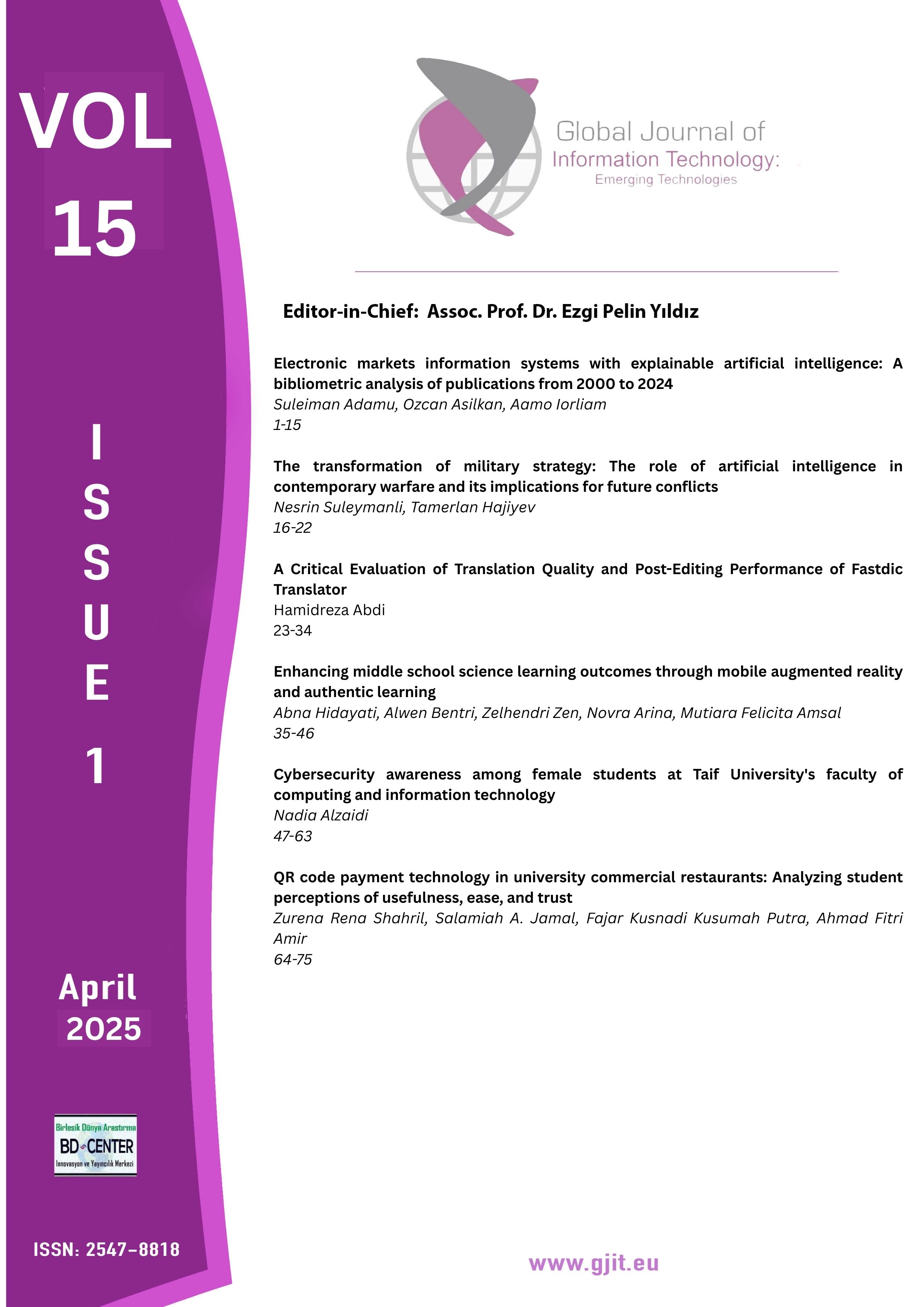Enhancing middle school science learning outcomes through mobile augmented reality and authentic learning
Main Article Content
Abstract
This study examines the effectiveness of authentic learning supported by mobile phone-based augmented reality in enhancing science learning. Authentic learning, which bridges theoretical knowledge and real-world application, remains underexplored in the context of immersive digital tools. Addressing this gap, the study aims to evaluate the impact of augmented reality integrated into mobile devices on students’ science learning outcomes. A quantitative approach was employed using a quasi-experimental design with factorial analysis. The research involved high school students, divided into experimental and control groups. The procedure included the development of augmented reality-based instructional media, the design of learning sequences, classroom implementation, and subsequent evaluation. Data were collected and analyzed using statistical software to determine the effectiveness of the intervention. The findings indicate that the integration of augmented reality within an authentic learning framework significantly improves students’ understanding and engagement in science education. The study underscores the potential of mobile technology to transform science instruction by providing contextual, interactive, and experiential learning environments.
Keywords: Augmented reality; authentic learning; mobile learning; science education; technology integration.
Downloads
Article Details

This work is licensed under a Creative Commons Attribution-NonCommercial-NoDerivatives 4.0 International License.
Authors who publish with this journal agree to the following terms:- Authors retain copyright and grant the journal right of first publication with the work simultaneously licensed under a Creative Commons Attribution License that allows others to share the work with an acknowledgement of the work's authorship and initial publication in this journal.
- Authors are able to enter into separate, additional contractual arrangements for the non-exclusive distribution of the journal's published version of the work (e.g., post it to an institutional repository or publish it in a book), with an acknowledgement of its initial publication in this journal.
- Authors are permitted and encouraged to post their work online (e.g., in institutional repositories or on their website) prior to and during the submission process, as it can lead to productive exchanges, as well as earlier and greater citation of published work (See The Effect of Open Access).
